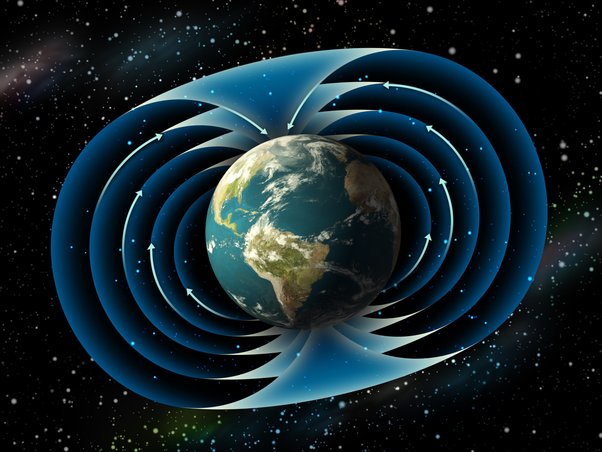The Earth’s magnetic field, a crucial shield against harmful radiation, has undergone dramatic shifts throughout history. A new study challenges conventional wisdom, suggesting a period of extreme magnetic weakness may have actually facilitated the rise of complex life.
Earth’s Magnetic Field: Protector and Potential Ally?
Our planet’s magnetic field stands in stark contrast to those of Venus and Mars, which lack this vital protection. This shield defends Earth from the relentless assault of the solar wind and coronal mass ejections, safeguarding the atmosphere and life on the surface. Consequently, the possibility of a weakening field understandably sparks concern. However, this new research presents a surprising twist.
A Weakening Shield, A Turning Point for Life?
Scientists have analyzed rock formations containing a record of the Earth’s ancient magnetic field. Their findings reveal an exceptionally weak magnetic field existing between 591 and 565 million years ago, coinciding with a pivotal period in life’s history: the emergence of the Ediacaran fauna, the first complex animals.
The Oxygen Connection
The rise of complex life is believed to be linked to increased atmospheric oxygen levels. While the exact cause of this oxygen boost remains unclear, the study proposes that the weakened magnetic field may have played a key role.
A Leaky Shield, More Oxygen?
A weaker magnetic field could have allowed more hydrogen to escape Earth’s atmosphere. With less hydrogen readily available to bond with oxygen, the potential existed for a shift in atmospheric composition, potentially creating a more oxygen-rich environment.
Quantifying the Impact: A Challenge
The exact impact of a weaker magnetic field on atmospheric oxygen levels is difficult to determine. Existing models predict a significant increase in hydrogen loss (30% to 1000%), but the resulting oxygen boost remains uncertain.
A Plausible Explanation?
Despite the challenges in quantifying the effect, the authors believe a weaker field could have provided the nudge needed for the rise of complex life. They propose that the weakened shield might have exposed the upper atmosphere to increased solar wind, leading to a chain reaction:
- Increased loss of hydrogen ions
- Production of more nitrogen oxides (similar to CFC-induced ozone depletion)
- Exposure of the lower atmosphere to more ultraviolet radiation, splitting water vapor into hydrogen and oxygen (with some hydrogen escaping)
A Recipe for Complex Life?
The cause of this dramatic weakening of the Earth’s magnetic field remains unknown. However, this study suggests that the quest for planets harboring complex life may require not just strong magnetic fields, but a strategically timed period of weakness to create the conditions necessary for this crucial evolutionary leap.















































